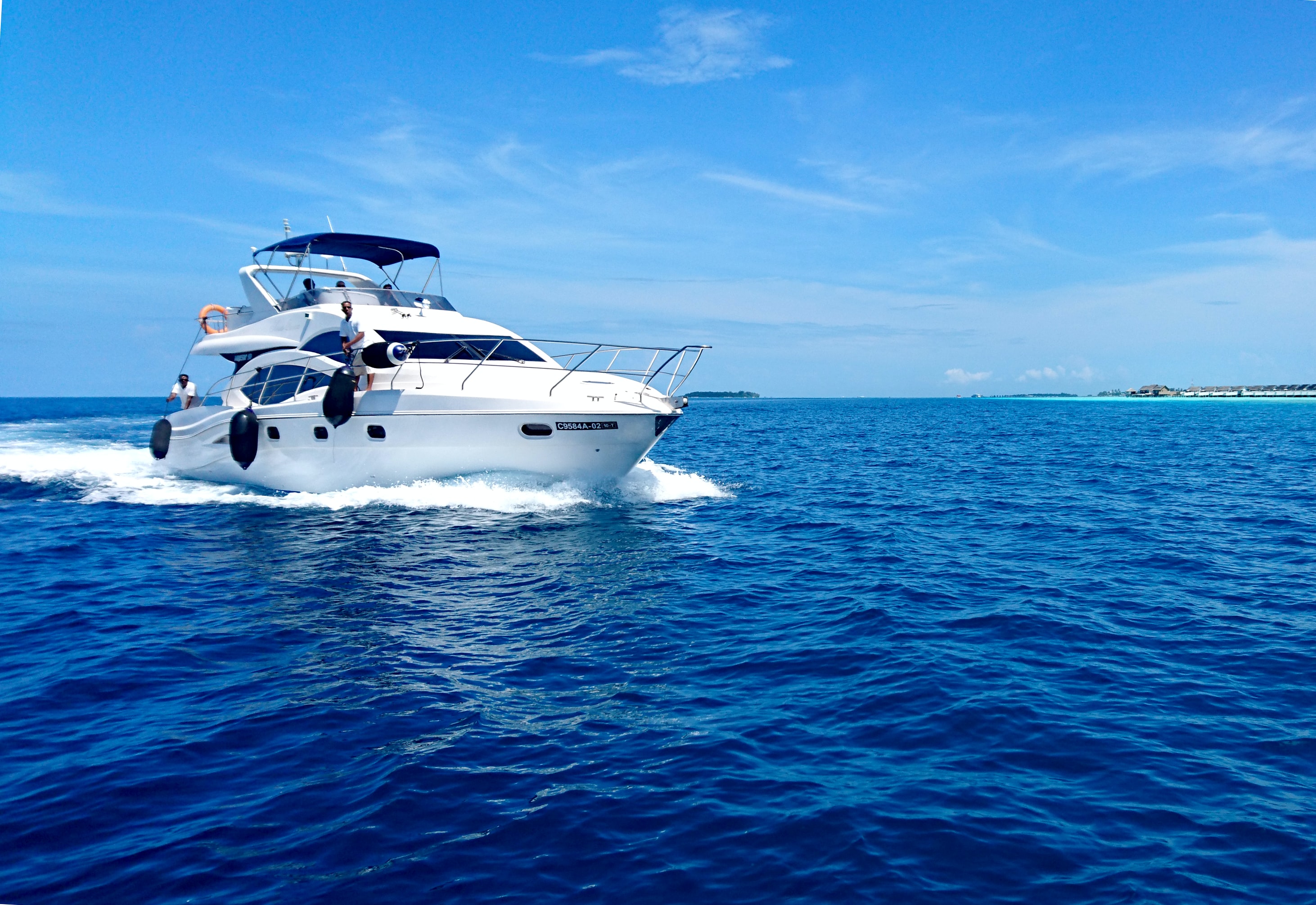We’ve all been there - just as you dock after a great day on the water, you realize that some maintenance is needed before heading home.
As a boat owner, it isn’t all fun all the time. Just like a car, a boat requires regular maintenance to ensure that it’s running smoothly and safely.
Luckily, some of this maintenance can be done yourself. Here are a few quick checks and tasks to maintain your boat in excellent condition.
How to Maintain Your Boat
- Wash the boat regularly
After every use, you should wash your boat with soap and water. This is especially important when boating in saltwater.
A boat’s exterior can become damaged over time due to weather, debris, and constant exposure to salt. Washing your boat regularly will prolong the boat’s finish and protect the hull and other areas from corrosion, abrasions, and scratches.
Make sure you’re using detergents that are made specifically for watercraft, as well as clean, fresh water. This will help to protect the gel coat finish.
- Wipe down the upholstery
Your boat likely has vinyl-covered seating. This type of material is durable and easy to clean.
You should regularly wipe down the seats to prevent any sort of buildup from mold or mildew. Here’s how:
- Fill up a 5-gallon bucket with water and 1 cup of liquid soap.
- Take the soapy water and a wet sponge to wipe the seats down. Don’t pour water directly on the seat.
- Follow up with clean water (no soap) and a damp rag to pick up any soap residue.
- Finally, dry the seats with a clean, soft cloth.
You can also apply a UV inhibitor protectant, like the 303 Marine Aerospace Protectant, to the seats. This will prevent them from cracking due to constant UV exposure.
If possible, store the seats or cover them in between boat outings.
- Prioritize boat engine maintenance
Don’t worry, you don’t have to be a mechanic to check and maintain your boat’s engine.
Taking preventive measures will not only help to keep the engine running for a long time, but can also preserve the value of your boat.
Here are a few things to look out for:
- Check whether the fuel tank vent is open and make sure you have sufficient fuel in there.
- Look to see whether the engine mount screw clamps are tight and secure.
- Check the propeller for excessive oil buildup.
- Make sure the water intake is free of debris.
You should also flush the motor to eliminate sand, dirt, and other contaminants after outings. This applies to every boater, regardless of whether you travel in freshwater or saltwater.
» MORE: Outboard Motor Maintenance
Here are some general boat maintenance tips to apply:
- Regularly check for water in the fuel.
- Look at the engine’s oil level.
- Replace spark plugs if needed.
- Check clamps for rust.
- Make sure the fuel lines do not have cracks and wear.
- Inspect the propeller and engine belts for wear and tear. Replace them if needed.
- Make sure the tank vent is free of blockages.
- Replace any damaged fuel hoses.
Boat Maintenance After Saltwater Exposure
When boating in saltwater, it’s especially important to follow a steady maintenance schedule. The saltwater will significantly accelerate corrosion.
There are two key tasks to complete within 24 hours of exposure:
- Clean the boat: Wash down both the interior and exterior with fresh water and soap. This will remove leftover saltwater residue and protect the finish. If the salt is left untouched, it will begin to corrode the metal components within the vessel.
- Flush the engine: Next, flush the engine with freshwater ASAP. This will prevent corrosion and keep the salt from collecting in the lower unit.
This should be done on both outboard and inboard motors.
Boat Trailer Maintenance
Your trailer will need regular maintenance, just as your boat does. Paying attention to these basic checks will pay off in the long run.
- Check that the tire treads are not worn down or unevenly worn. Additionally, make sure there are no cracks in the side walls.
- Spray contact spray running from your vehicle to the trailer. This will keep the connection strong and prevent corrosion.
- Check that the lights on the trailer are working correctly. Replace bulbs as necessary. Also inspect the lenses for cracks.
- Check the air pressure in the tires before every outing.
- Check that the coupler is working correctly, and there is no damage present. Lubricate it with grease as needed. Also ensure that the coupler latch is tight on the hitch ball when connecting.
- Make sure the wheel hubs are lubricated and refill them as necessary.
» MORE: Boat Trailer Maintenance Tips

